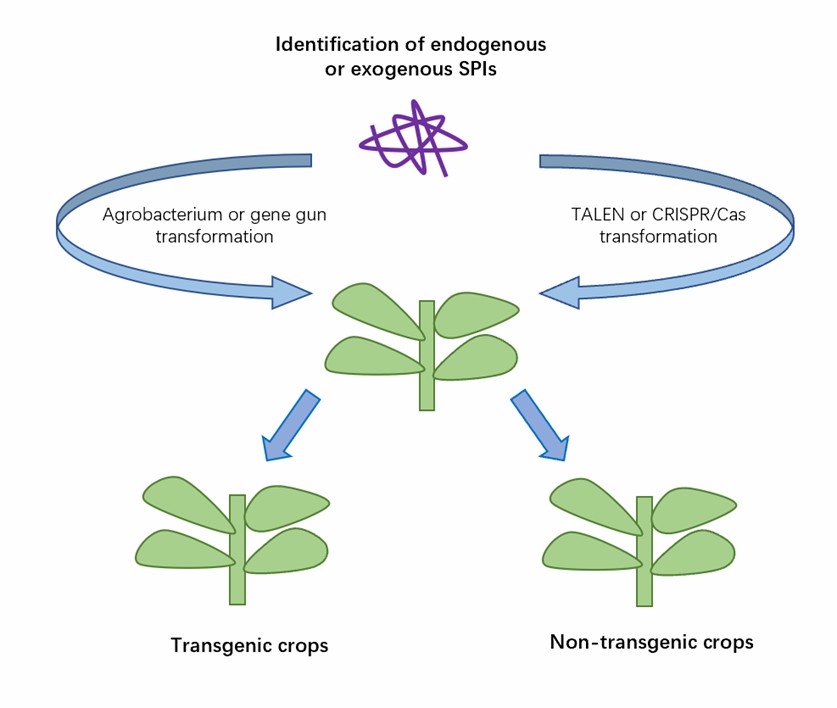Proteinase inhibitors (PIs) are molecules, mostly protein in nature, which inhibit the function of proteinases/proteases released by pathogens. The proteinase inhibitors involve in perturbing the enzymatic capability in microbic chemicals that are obtainable at intervals plant pests; hence, they might not digest plant tissues. Protein inhibitors are induced mostly during wounding or chemical signaling through plant molecules. Signal molecules involved in the production and relocation of proteinase inhibitors by the phloem and xylem of the plant. When an insect feed on a plant, those inhibitors involve less digestion in the insect, thus, the pest may not grow a proper level.
Lifeasible possesses enriched experience in plant science, performing various transgenic strategies based on proteinase inhibitor coding genes. Our scientists and expert technicians have been dedicated to customizing your program to meet your requirements.
 Fig.1 Serine proteases inhibitors identified in plants or in other organisms to increase the resistance to plant nematodes.
Fig.1 Serine proteases inhibitors identified in plants or in other organisms to increase the resistance to plant nematodes.
Lifeasible is pleased to share our cutting-edge technology and extensive expertise in plant science to facilitate our clients' research and project development. We can offer high-quality customized services by adjusting protocols to meet specific requirements. If you are interested in our services or have any questions, please feel free to contact us or make an online inquiry.
Lifeasible has established a one-stop service platform for plants. In addition to obtaining customized solutions for plant genetic engineering, customers can also conduct follow-up analysis and research on plants through our analysis platform. The analytical services we provide include but are not limited to the following:
Get Latest Lifeasible News and Updates Directly to Your Inbox
Adaptive Evolutionary Mechanism of Plants
February 28, 2025
Unraveling Cotton Development: Insights from Multi-Omics Studies
February 27, 2025